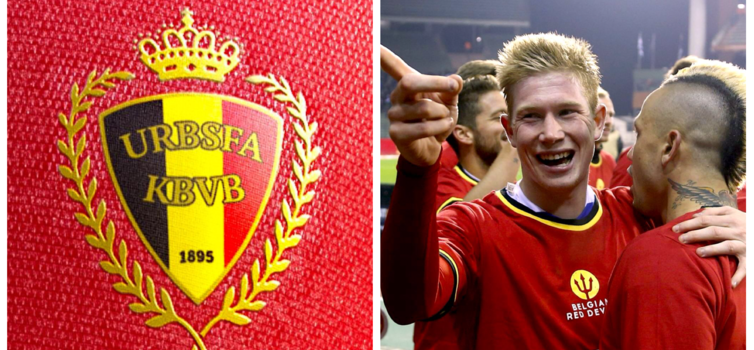Belgium players to take coaching badges while on international duty

De Bruyne is one of the players to have signed up for the scheme
Written by Simon Austin — December 22, 2019
BELGIUM’S 'golden generation' will take their coaching badges while on international duty under a pioneering scheme introduced by the Red Devils.
Nineteen players, including Kevin De Bruyne and Thibaut Courtois, have signed up to study for their Uefa A and B licences during their time with the national team.
Manager Roberto Martinez, who is also Technical Director of the Royal Belgium Football Association, mooted the idea after his side had reached the semi-finals of the 2018 World Cup.
Belgium’s women’s team had introduced the same scheme two years ago and 13 of their players have now earned their Uefa B Licences.
Kris Van Der Haegen, assistant with the women’s team and Director of Coach Education for Belgium, told TGG: “Roberto put the idea on the table after the World Cup. He said, ‘how can we involve these players in the future of Belgian football?’”
The idea was put to the players in November, in the run-up to their Euro 2020 qualifier against Russia (which Belgium won 4-1).
“I was pleasantly surprised by the enthusiasm of the players and the number of questions they asked and the number of emails they sent me afterwards,” Van Der Haegen said.
In all, 19 players signed up, including De Bruyne, Courtois, Jan Vertonghen, Simon Mignolet, Dedryck Boyata, Thomas Vermaelen, Alex Witzel and Thorgan Hazard - although his brother Eden, the Real Madrid winger, was not one of them.
“Eden said he wants to focus on enjoying playing and at this stage isn’t interested in becoming a coach," Van Der Haegen said. "This was an opportunity, not an obligation, so it was fine.”
Romelu Lukaku was injured for the Russia game, so he didn't join up with the squad, but has expressed an interest in taking part in the scheme.
In November, the players who signed up were all given an initial piece of homework by Van Der Haegen.
“I gave them each three video clips, just 40 seconds long, from games Belgium had played a two years ago, and asked them to identify a problem with the way we played," he revealed.
“Then, using a Powerpoint about Belgium’s coaching methods, they were asked to devise three training activities to solve the problem that they had seen in the clip.”
The players will formally begin their B Licence course in March, when they join up with the national squad at their training base near Brussels. Van Der Haegen believes the international windows offer ample opportunity to study.
“Most of the players come from a club game at the weekend. Their first day with the national team is light recovery, which gives time for the coaching course. With the women, we found that the studying had a huge impact on their performance.
"They started talking football with each other and thinking about phases of the game instead of playing games or watching TV.
"When they have finished with the national team, they will go back to their clubs and work on what they have learned."
Van Der Haegen said the courses would ensure that Belgium’s “golden generation” are well on the way to becoming fully-qualified coaches by the time they finish their playing careers.
“The idea is that when they finish playing, they will be ready to start the Pro Licence,” he said. “Otherwise, it takes too long if you only start thinking about taking your badges at the end of your career - especially if you have had a long career. It will take three or four years, which is a long time if you go from zero.”
Former Chelsea captain John Terry, who is now assistant at Aston Villa, has previously argued that ex-players should be fast-tracked through their badges. "We need to make it easier for them [top players] to get into coaching roles by not doing the full length of the FA coaching course," he said in 2017.
Van Der Haegen also believes that the Belgian scheme will empower players and make them more productive and effective.
“Now they will be looking at clips of the opposition and taking an active part in the team’s preparation," he said. "When the players are covering opposition analysis as part of the course, they will be using real examples about the team’s next opponent.
“When they do analysis of the Belgium team, they will be working on the reality of games. They will be more involved in the preparation and begin the really think like coaches.”
The idea is that A and B Licence courses will take two years in total to complete, although “it will depend on how much time they can spend working between the Fifa windows,” Van Der Haegen said.




-1.png)





